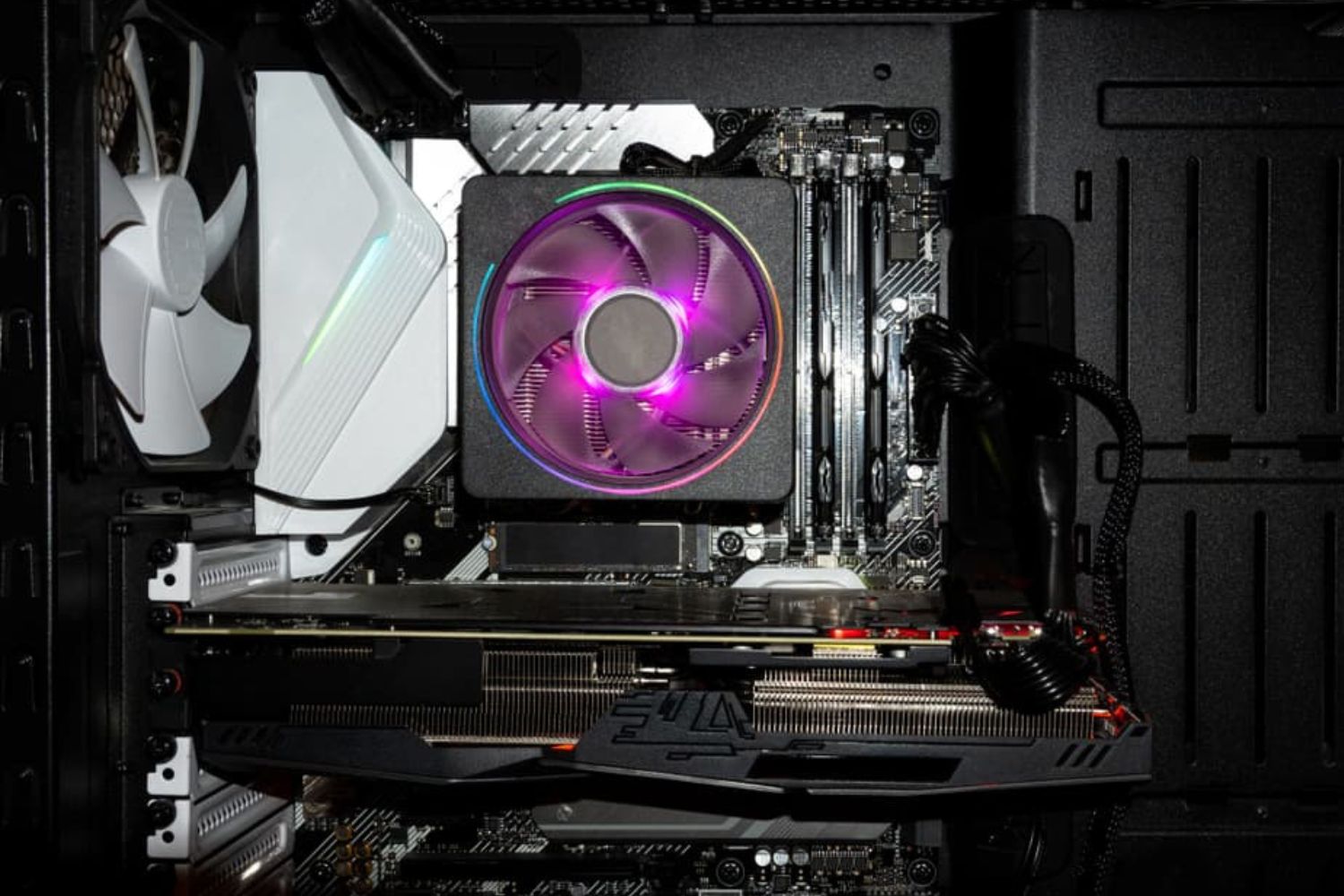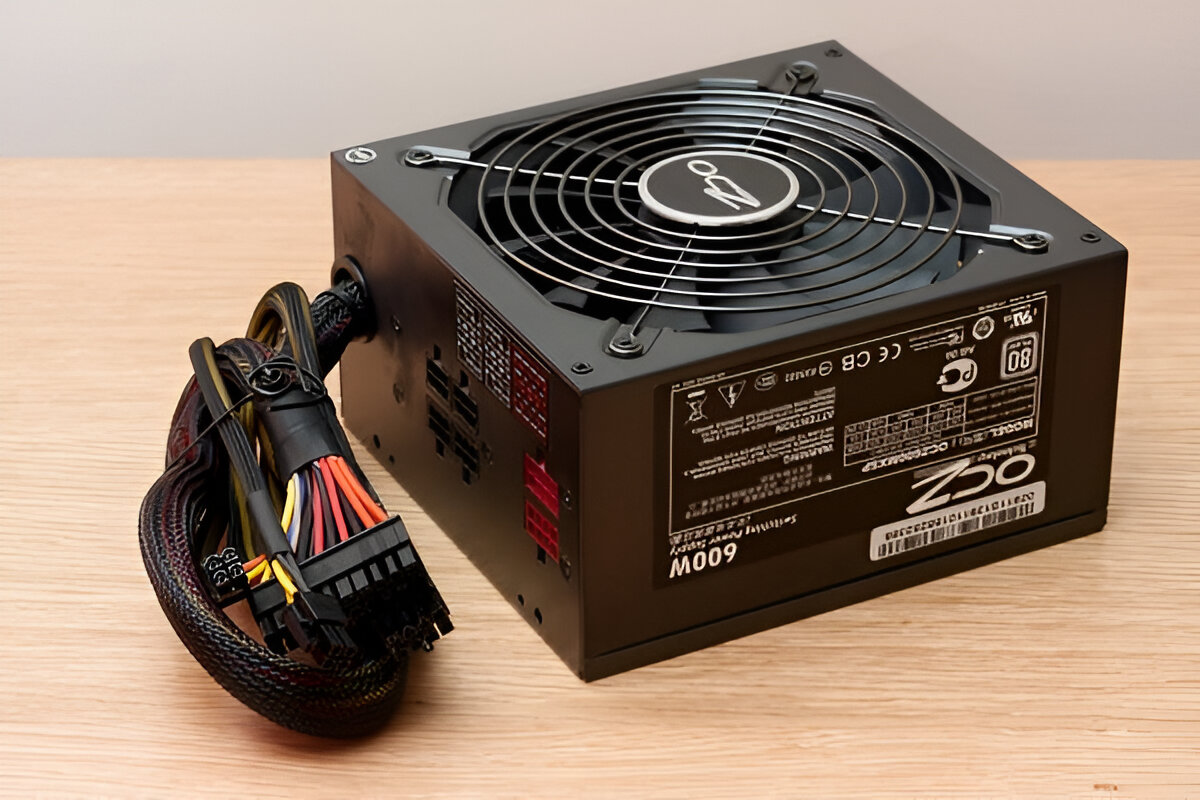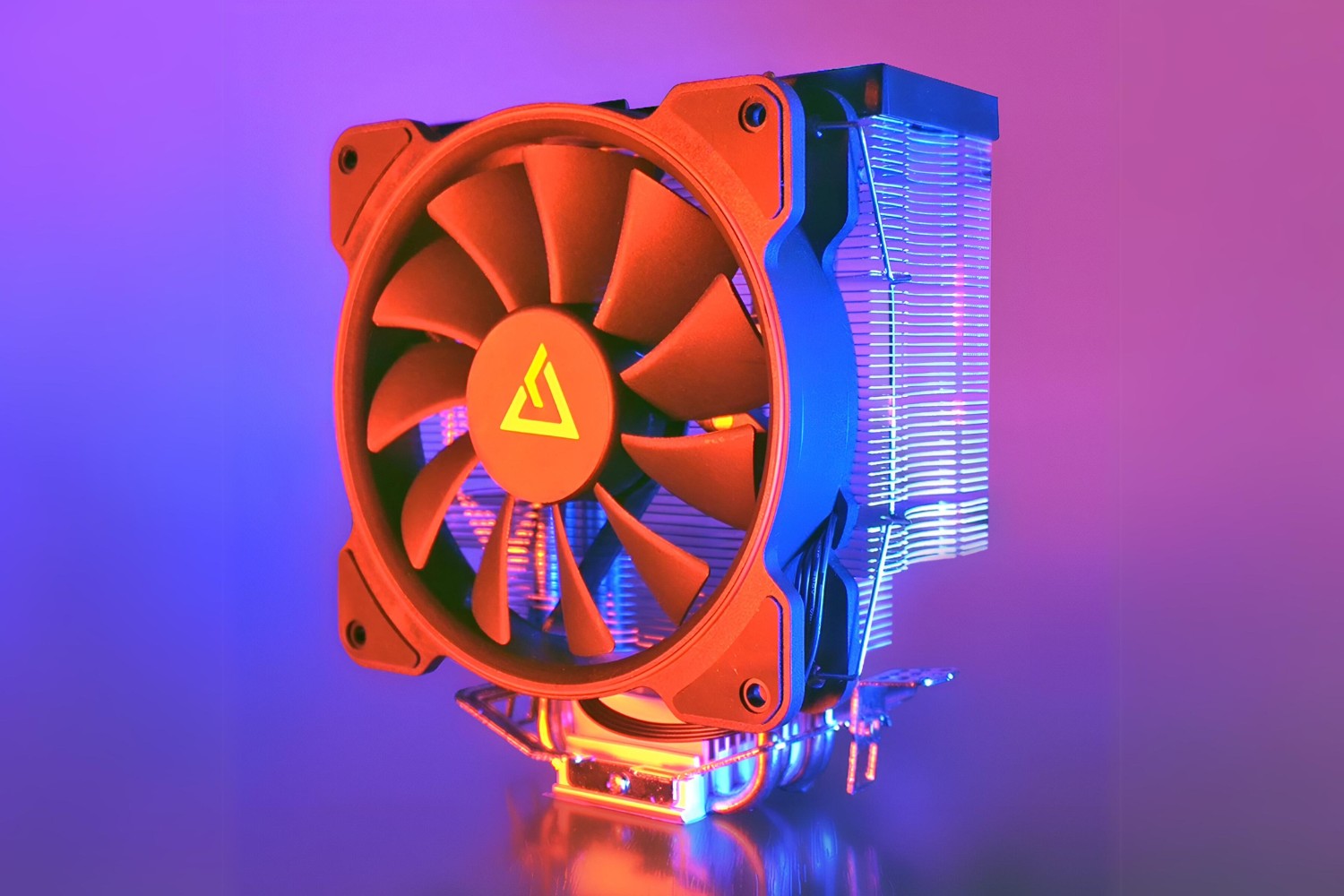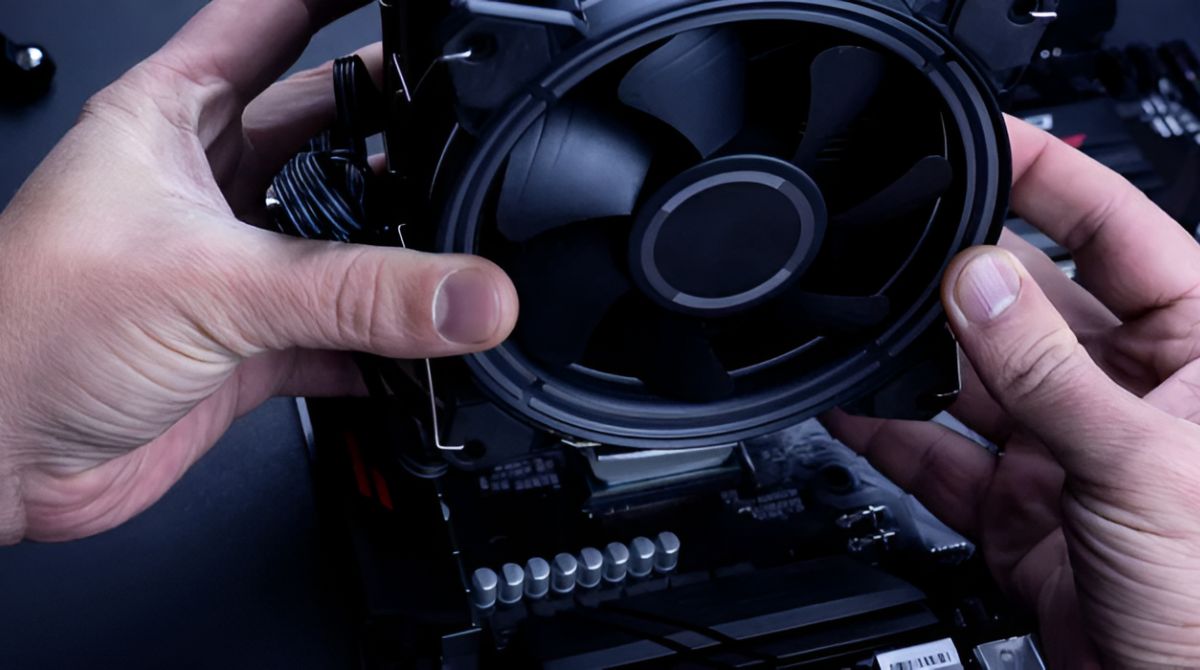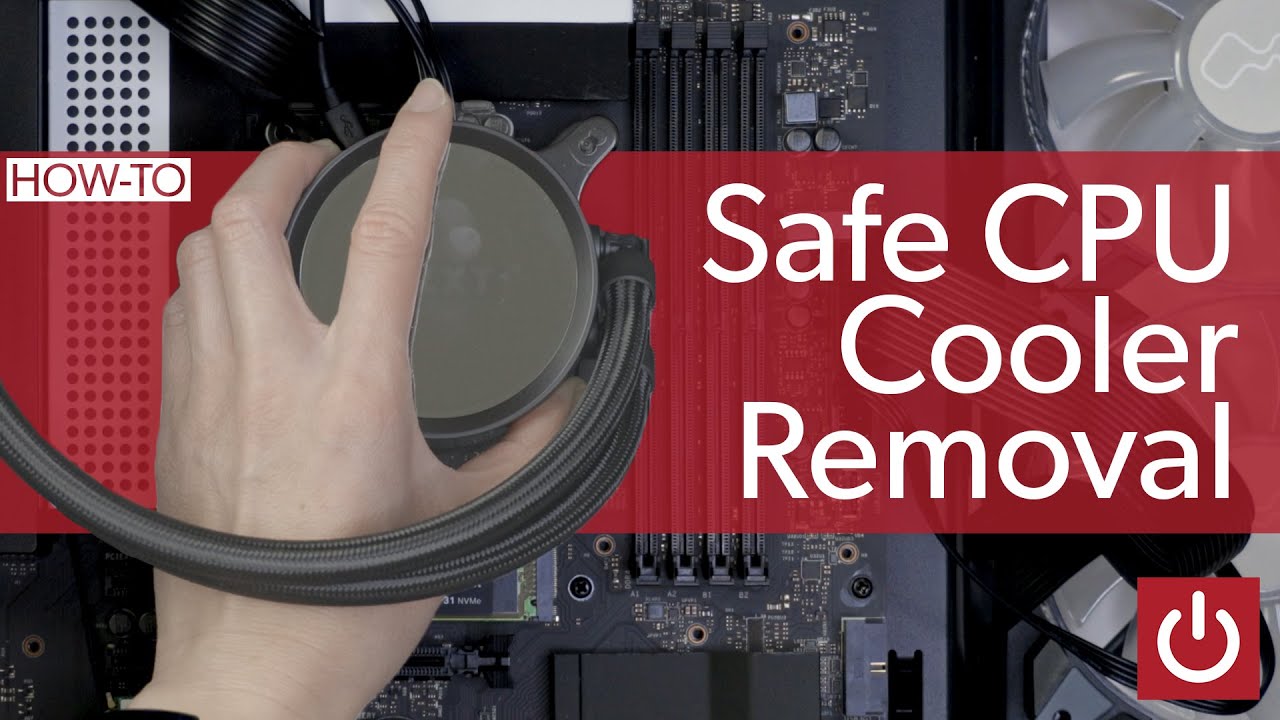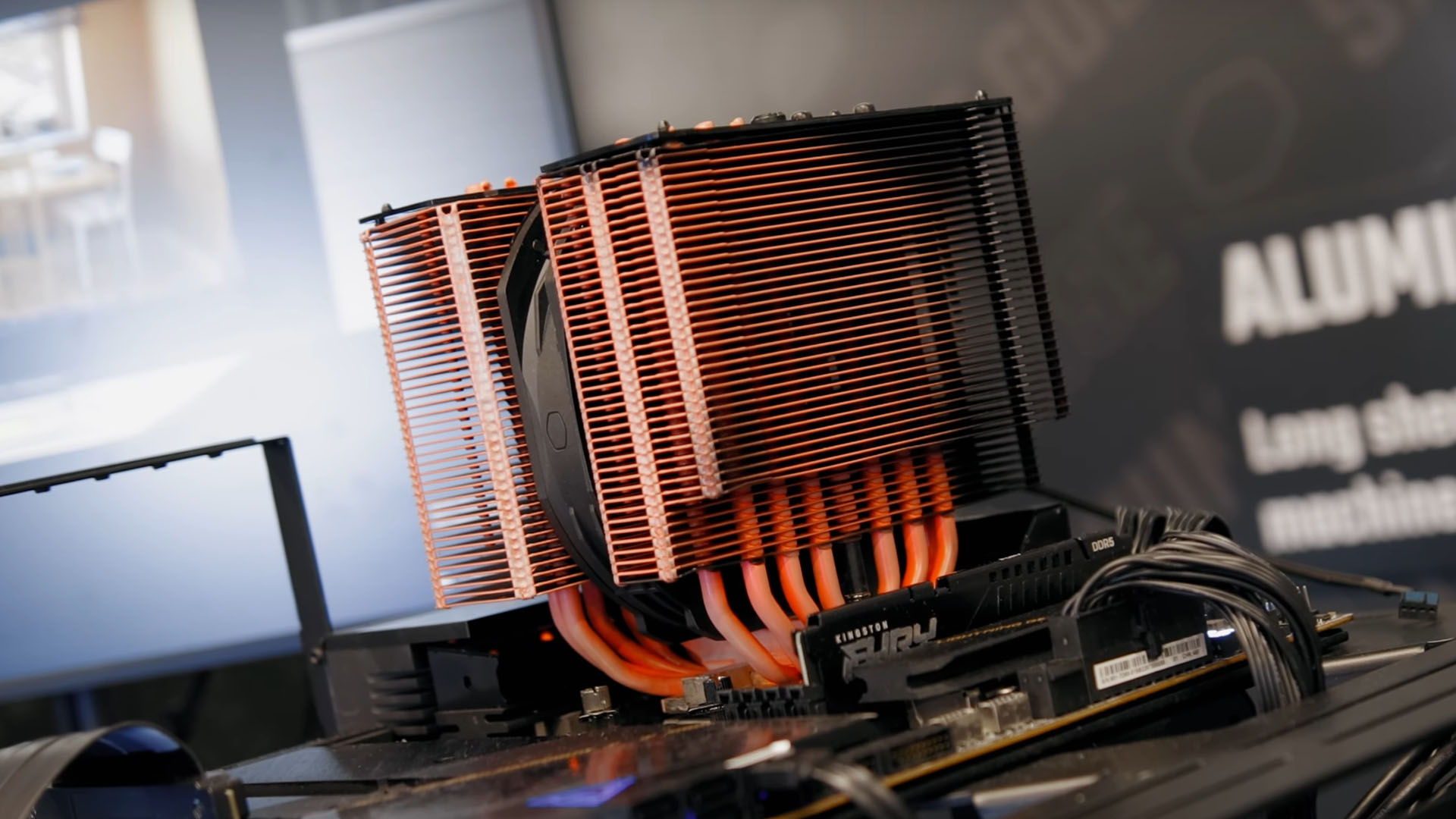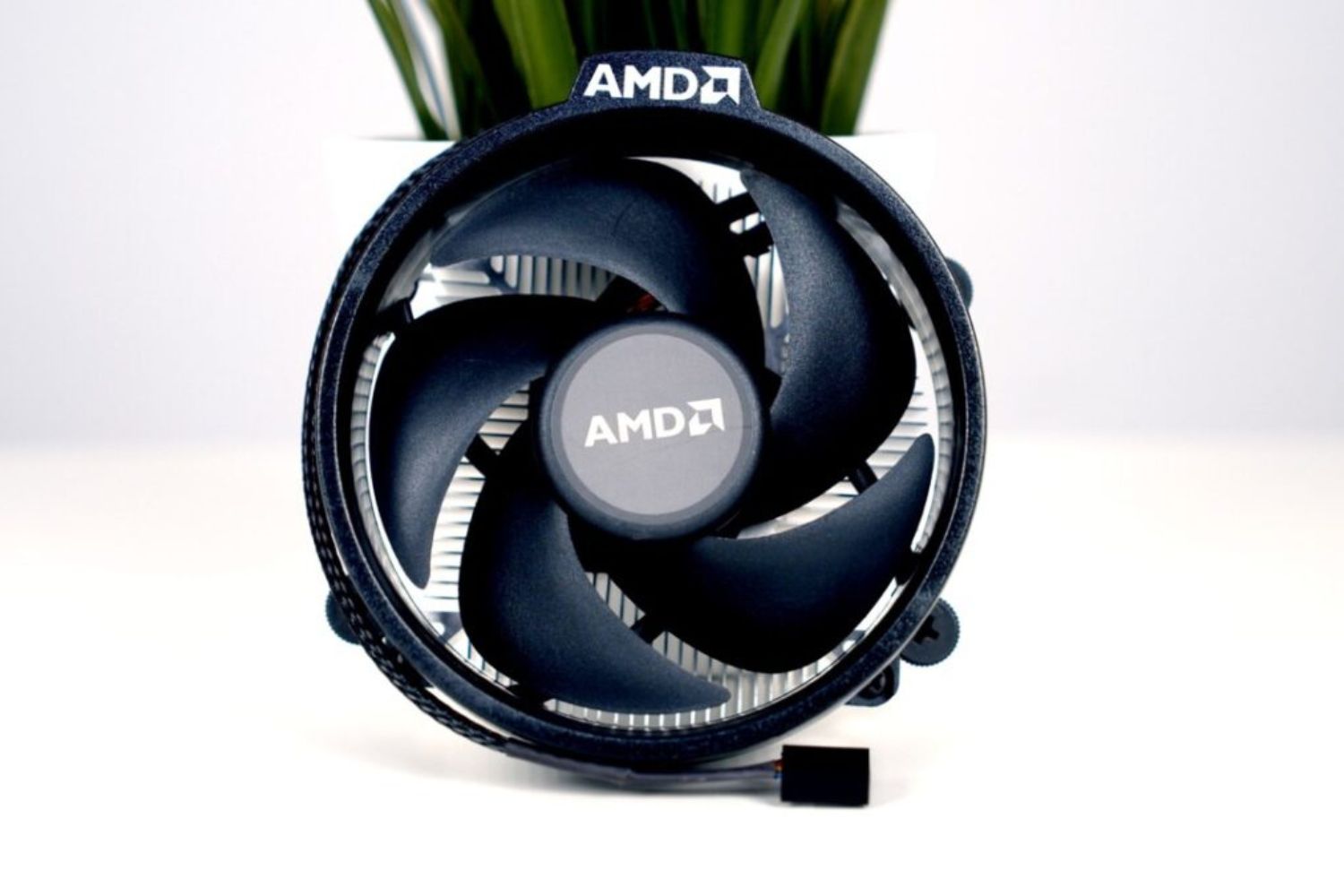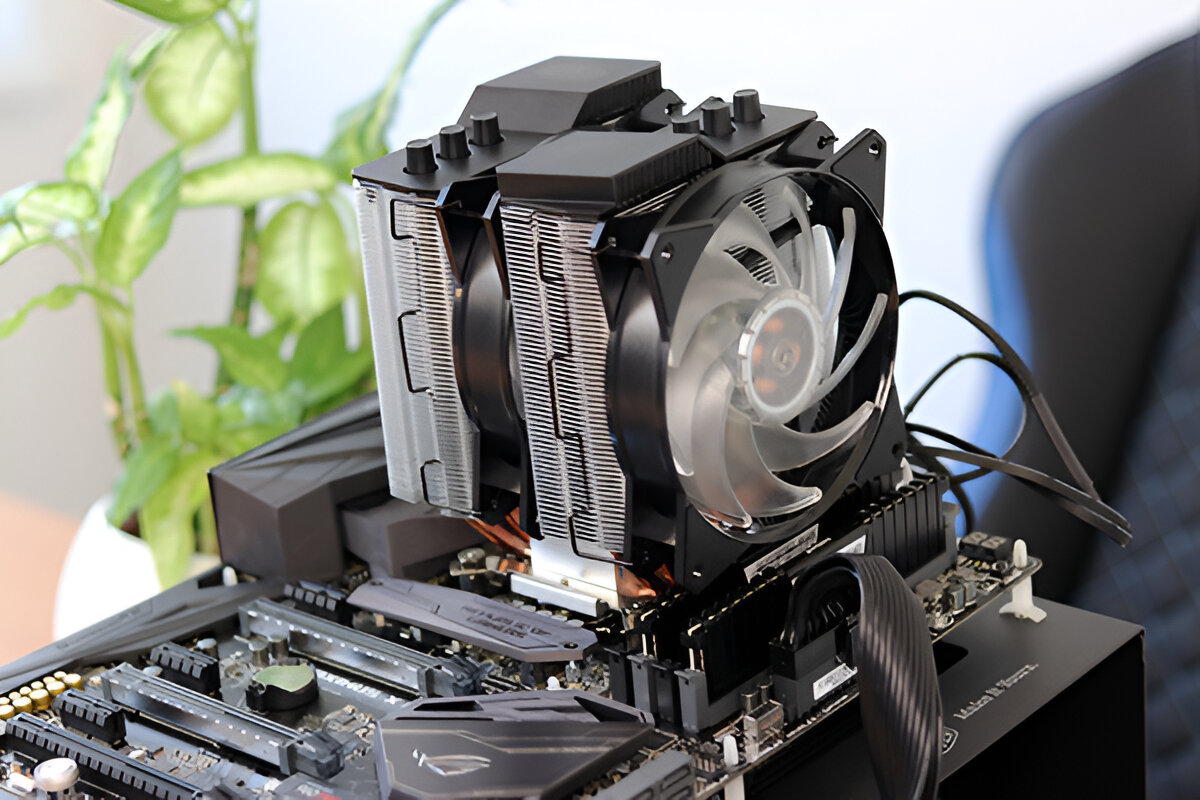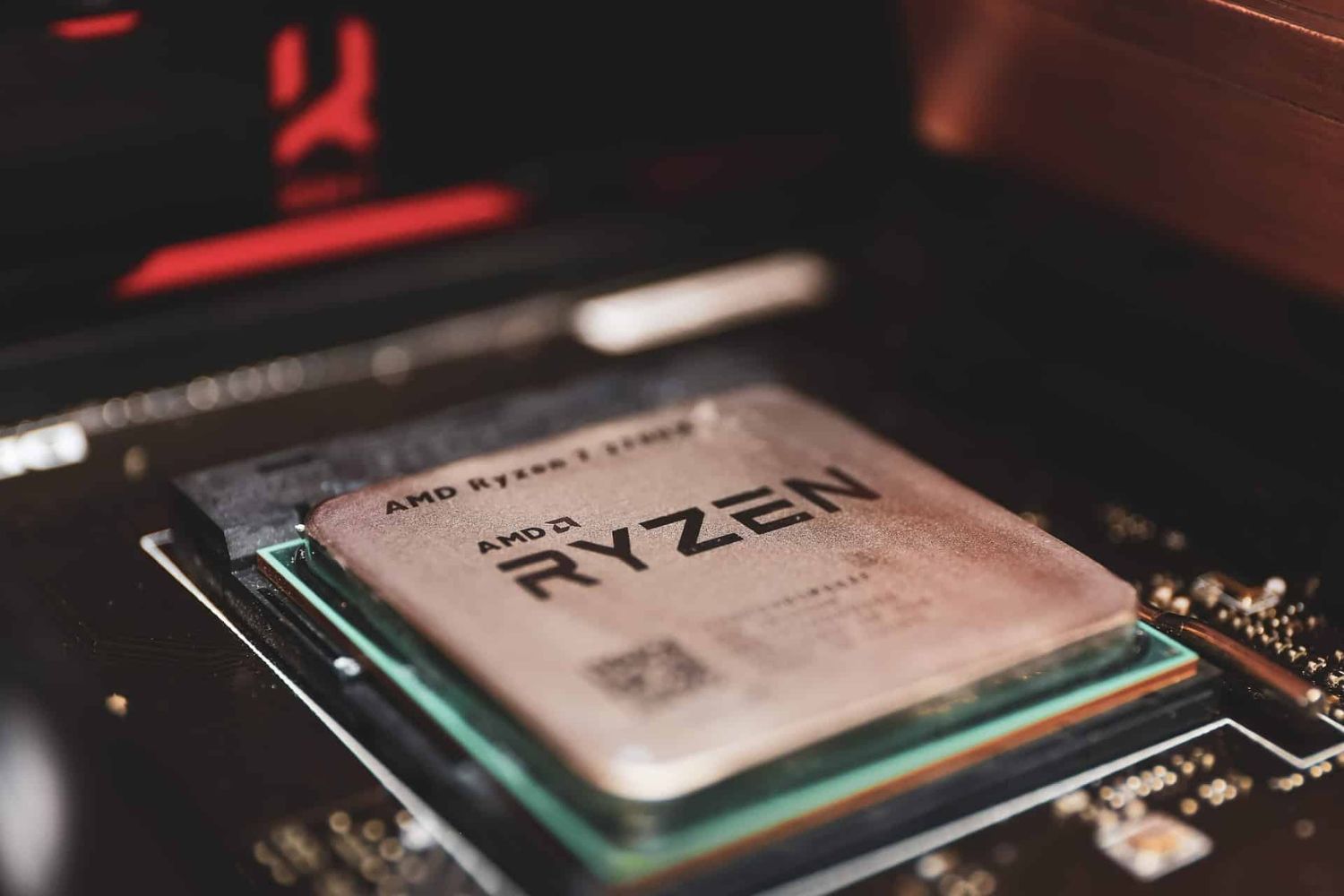Introduction
Welcome to the world of CPUs, where the performance of your computer is determined by the powerhouse known as the Central Processing Unit. As you delve into the realm of CPUs, you’ll soon come across the term “CPU cooler.” But what exactly is a CPU cooler, and why is it necessary?
A CPU cooler is a crucial component in a computer system that helps regulate the temperature of the CPU. Similar to how a radiator cools down the engine of a car, a CPU cooler keeps the processor from overheating by dissipating the heat generated during intensive computing tasks. Without a CPU cooler, the excessive heat can cause severe damage to the CPU, leading to system instability, reduced performance, and even permanent hardware failure.
Now, you might wonder why a separate component is needed to cool down the CPU when computers already have built-in fans. While it’s true that most computers come with some form of cooling mechanism, they are often insufficient for handling the heat generated by modern, high-performance CPUs.
With the advent of faster and more power-hungry processors, the demand for effective cooling solutions has grown. This is where a dedicated, high-quality CPU cooler comes into play. It provides superior cooling efficiency, ensures optimal performance, and extends the lifespan of your processor.
In the following sections, we will explore the factors that determine the need for a CPU cooler, the various types of CPU coolers available, and how to choose the right one for your system. We will also discuss the signs that indicate when a CPU cooler is necessary. By the end of this article, you’ll have a comprehensive understanding of why a CPU cooler is an essential component for any computer system.
What is a CPU Cooler?
A CPU cooler is a hardware component that is responsible for maintaining the temperature of the CPU within safe operating limits. As the CPU performs complex calculations and processes data, it generates heat as a byproduct of its operations. If this heat is not dissipated efficiently, the CPU can quickly reach high temperatures and potentially become damaged.
A CPU cooler works by drawing heat away from the CPU and transferring it to the surrounding air. It consists of various components, including a heat sink, thermal interface material (TIM), and one or more fans.
The heat sink is a metal structure usually made of aluminum or copper with many small fins. Its purpose is to provide a large surface area to radiate heat away from the CPU. The thermal interface material, often a thin layer of thermal paste or pad, sits between the CPU and the heat sink. It helps to improve heat conduction and fill in any microscopic gaps, ensuring efficient heat transfer.
The fan(s) attached to the heat sink play a crucial role in facilitating airflow to cool down the heat sink. By blowing air over the fins, the fans increase the rate of heat dissipation. They can be either fixed-speed or variable-speed fans, with the latter offering more control over the cooling performance.
In some cases, CPU coolers may also feature additional components, such as heat pipes or liquid cooling systems, to further enhance their cooling capabilities.
It’s important to note that not all CPUs require a dedicated cooler. Entry-level processors and low-power systems often come with a stock cooler, which is a basic cooling solution provided by the CPU manufacturer. These stock coolers are designed to handle the thermal needs of the CPU under normal operating conditions, but they may not be sufficient for demanding tasks or overclocking.
For high-performance CPUs, gaming rigs, or workstations that frequently push the limits of processing power, installing an aftermarket CPU cooler is highly recommended. It provides superior cooling performance, ensuring that the CPU operates at an optimal temperature, which can result in increased stability, improved longevity, and potentially higher overclocking capabilities.
Why is a CPU Cooler Necessary?
A CPU cooler is necessary to ensure the proper functioning and longevity of the CPU. Here are several key reasons why a CPU cooler is essential:
- Heat Dissipation: As mentioned earlier, CPUs generate a significant amount of heat during operation. If this heat is not effectively dissipated, it can lead to overheating, which can cause the CPU to throttle its performance or even shut down. A CPU cooler helps dissipate the heat, preventing the CPU from reaching dangerous temperatures.
- System Stability: Excessive heat can impact the stability of your computer system. When a CPU operates at high temperatures, it can lead to errors, crashes, and system freezes. A CPU cooler helps maintain a consistent temperature, ensuring stable and reliable performance even during demanding tasks.
- Improved Performance: CPUs operate more efficiently at lower temperatures. When a CPU is kept cool, it can maintain higher clock speeds and deliver better overall performance. In contrast, high temperatures can negatively impact the CPU’s ability to boost its clock speed, resulting in reduced performance. A CPU cooler helps optimize performance by keeping temperatures in check.
- Prolonged Lifespan: Heat is one of the major factors that contribute to hardware degradation over time. Long-term exposure to high temperatures can lead to the deterioration of a CPU’s internal components. By using a CPU cooler to properly regulate temperature, you can extend the lifespan of your CPU, delaying the need for an upgrade or replacement.
- Overclocking Support: Overclocking is the process of pushing a CPU beyond its factory-set clock speed to extract additional performance. However, overclocking generates more heat, and without adequate cooling, it can lead to instability and potential damage to the CPU. A CPU cooler capable of handling the increased thermal load is necessary for successful and safe overclocking.
Overall, a CPU cooler is necessary to maintain optimal temperature levels, ensure system stability, improve performance, prolong the lifespan of the CPU, and support overclocking. It is an essential component for any computer system, particularly for those that require high computing power and intense workloads.
Factors That Determine the Need for a CPU Cooler
While a CPU cooler is generally recommended for all computer systems, there are several factors that can help determine the specific need for one:
- CPU Power and Usage: High-performance CPUs, such as those designed for gaming, content creation, or intensive computational tasks, tend to generate more heat than lower-tier processors. If you’re using a high-end CPU or frequently engage in resource-intensive activities, a dedicated CPU cooler is crucial to ensure efficient heat dissipation.
- Overclocking: If you plan to overclock your CPU and push it beyond its factory-set clock speeds, a robust CPU cooling solution is essential. Overclocking increases a CPU’s power consumption and generates more heat, necessitating a cooler capable of handling the additional thermal load.
- Ambient Temperature: The ambient temperature of the room or environment in which your computer operates can impact CPU temperatures. If you live in a hot climate or have limited airflow in your workspace, a CPU cooler becomes even more important to counteract elevated temperatures.
- Case Airflow: The overall airflow within your computer case plays a crucial role in maintaining component temperatures. If your case has inadequate ventilation or limited fan placements, it can lead to heat buildup around the CPU. In such cases, a CPU cooler can help mitigate temperature issues and improve overall airflow efficiency.
- System Enclosure: The type of computer case or enclosure you use can affect the need for a CPU cooler. Small form factor cases, for example, often have limited space and cramped layouts, which can hinder proper airflow and cooling. In these cases, choosing a compact cooler specifically designed for small cases becomes essential.
- Noise Tolerance: Some CPU coolers, particularly air coolers with larger fans, can generate significant noise under heavy loads. If you have a low noise tolerance or prefer a quieter computing experience, you may opt for quieter cooling solutions like low-profile coolers or liquid CPU coolers.
- Budget: The cost of a CPU cooler can vary greatly depending on the type and performance level. If you’re on a tight budget, you may prioritize investing in a better CPU or other components initially and opt for an aftermarket cooler at a later stage. However, it’s important to ensure that your CPU’s stock cooler can handle the thermal demands adequately in the meantime.
Considering these factors can help you determine the specific need for a CPU cooler in your system. It’s important to strike a balance between your CPU’s thermal requirements, your computing workload, and your budget constraints to choose the most suitable cooling solution.
Types of CPU Coolers
There are two primary types of CPU coolers available: air CPU coolers and liquid CPU coolers. Each type has its own advantages and considerations, catering to different needs and preferences.
Air CPU Coolers:
Air CPU coolers are the most common and widely used cooling solutions for CPUs. They consist of a combination of heat sinks and fans to dissipate heat efficiently. Air CPU coolers can be further classified into two subtypes:
- Stock Coolers: These are the default coolers that come bundled with most CPUs. They are typically made of aluminum or a combination of aluminum and copper. While stock coolers are generally sufficient for basic computing tasks and lower-powered CPUs, they may struggle to maintain optimal temperatures under heavy loads or overclocking.
- Aftermarket Air Coolers: These are third-party coolers designed to provide better cooling performance than stock coolers. Aftermarket air coolers often feature larger heat sinks with more extensive fin arrays and premium fans that offer higher airflow and lower noise levels. They are recommended for high-performance CPUs, gaming systems, and systems with overclocking requirements.
Liquid CPU Coolers:
Liquid CPU coolers, also known as AIO (All-in-One) coolers, employ a closed-loop system to cool the CPU. They consist of a pump, radiator, fan(s), and tubes filled with liquid coolant. The liquid absorbs heat from the CPU and carries it to the radiator, where the heat is dissipated by the fans. Liquid CPU coolers offer several advantages:
- Enhanced Cooling Performance: Liquid coolers can provide more efficient cooling than air coolers, thanks to the liquid’s ability to carry and dissipate heat effectively.
- Flexibility in Installation: Liquid coolers offer flexibility in terms of installation options. They support different radiator sizes and can be fitted in different locations within the case, depending on the available space and airflow requirements.
- Reduced Noise Levels: Liquid coolers often have larger fans that run at lower RPMs, resulting in quieter operation compared to some high-performance air coolers.
- Visual Appeal: Many liquid coolers come with customizable RGB lighting, making them visually appealing and adding to the aesthetics of the system.
It’s important to note that liquid coolers require proper installation and maintenance to avoid potential leaks and system damage. Additionally, high-end, customizable liquid cooling solutions may be more expensive than air coolers, making them suitable for enthusiasts or those with specific cooling requirements.
Choosing between air and liquid CPU coolers ultimately depends on factors such as cooling performance needs, budget, available space, noise tolerance, and aesthetic preferences. Both types of coolers can provide effective cooling solutions, so it’s important to select the one that best fits your requirements and system configuration.
Air CPU Coolers
Air CPU coolers are the most commonly used cooling solutions for CPUs. They consist of a combination of heat sinks and fans that work together to dissipate heat efficiently. Air CPU coolers can provide excellent cooling performance while being cost-effective and easy to install. Here are some key aspects of air CPU coolers:
Heat Sink: The heat sink is the main component of an air CPU cooler. It is usually made of aluminum or a combination of aluminum and copper. The heat sink features a series of closely spaced fins or ridges that increase surface area and facilitate heat dissipation. The heat from the CPU is transferred to the heat sink through a thermal interface material (TIM), such as thermal paste or thermal pads.
Fan(s): Air CPU coolers typically feature one or more fans attached to the heat sink. The fans help in drawing cool air from the surroundings and blowing it over the fins of the heat sink. This airflow aids in dissipating heat more effectively. The fans can be of various sizes and designs, with larger fans often offering better cooling efficiency and lower noise levels.
Types of Air Coolers: Air CPU coolers come in different designs and forms to cater to different needs and system configurations. Tower coolers are the most common type, consisting of a large vertical heatsink with one or more fans attached to it. They provide efficient cooling performance and compatibility with a wide range of cases. Low-profile coolers, on the other hand, are designed for use in small form factor cases where space is limited. They have a more compact design and usually feature smaller fans.
Advantages of Air Coolers: Air CPU coolers offer several advantages that make them popular among PC builders:
- Cost-effective: Air coolers are generally more budget-friendly compared to liquid CPU coolers, making them an attractive option for users who want effective cooling without breaking the bank.
- Simplicity and Reliability: Air coolers have a simple design and do not have any liquid components. This makes them less prone to leaks or failures, ensuring reliable and long-lasting cooling performance.
- Easy Installation: Installing an air CPU cooler is straightforward and typically requires only basic tools. Manufacturers often provide clear instructions and mounting brackets that are compatible with a wide range of CPU socket types.
- Wide Compatibility: Air coolers are compatible with most computer cases and motherboard configurations. They can fit in both standard and smaller form factor cases, making them a versatile cooling solution.
- No Maintenance: Unlike liquid coolers that require periodic maintenance, air coolers are maintenance-free. Once installed, they do not require any refilling or other maintenance tasks.
Air CPU coolers are an excellent choice for users who prioritize cooling performance, budget-friendliness, ease of installation, and reliability. They provide effective heat dissipation and can handle the cooling needs of a wide range of CPUs, including mid-range and high-end processors. Additionally, air coolers are generally quieter compared to stock coolers and can offer better overclocking capabilities for those seeking to push their CPU’s performance to the limit.
Liquid CPU Coolers
Liquid CPU coolers, also known as AIO (All-in-One) coolers, are gaining popularity among PC enthusiasts and gamers. They offer advanced cooling performance and can efficiently dissipate heat from CPUs. Here are some key aspects of liquid CPU coolers:
Closed-Loop System: Liquid CPU coolers comprise a closed-loop system that consists of a pump, radiator, fans, and tubes filled with liquid coolant. Unlike custom liquid cooling systems, AIO coolers come pre-filled and sealed, making them easy to install without the need for extensive maintenance.
Pump: The pump is responsible for circulating the liquid coolant through the system. It sits either on the CPU water block or within the radiator and moves the liquid to carry away the heat from the CPU.
Radiator: The radiator is a heat exchanger that dissipates the heat carried by the liquid. It typically consists of a series of metal fins and tubes, which are designed to maximize heat transfer to the surrounding air. Radiator sizes can vary, with larger ones generally providing better cooling performance.
Fans: Liquid CPU coolers use fans to blow cool air across the radiator, facilitating heat dissipation. These fans can be either static pressure fans or high airflow fans, depending on the cooler model. They are designed to optimize the balance between cooling performance and noise levels.
Installation: AIO liquid coolers are relatively easy to install compared to custom liquid cooling loops. They usually come with detailed instructions and mounting brackets that are compatible with various CPU socket types.
Advantages of Liquid Coolers: Liquid CPU coolers offer a range of benefits that make them an attractive choice for enthusiasts:
- Superior Cooling Performance: Liquid coolers can provide better cooling performance compared to air coolers. The liquid’s ability to absorb heat efficiently and the larger radiator surface area result in enhanced heat dissipation, leading to lower CPU temperatures.
- Flexible Installation Options: Liquid coolers offer versatility in terms of installation. They can be installed in various locations within the case, supporting different radiator sizes. This flexibility allows users to optimize cooling performance based on their system setup.
- Reduced Noise Levels: Many liquid coolers feature larger fans that can run at lower RPMs while maintaining effective cooling. This results in quieter operation compared to some high-performance air coolers, providing a more enjoyable and peaceful computing experience.
- Visually Pleasing: Liquid coolers often come with customizable RGB lighting and sleek designs, making them visually appealing and adding a touch of style to the overall aesthetics of the system.
It’s important to note that liquid coolers can be more expensive than air coolers, especially for high-end, feature-rich models. Additionally, liquid coolers require careful installation and maintenance to avoid potential leaks or pump failures. However, for users who demand top-notch cooling performance, are involved in overclocking, or simply prefer the aesthetics of liquid coolers, these advanced cooling solutions are a popular choice.
How to Choose the Right CPU Cooler
Choosing the right CPU cooler is crucial to ensure proper cooling and optimal performance for your system. Here are some important factors to consider when selecting a CPU cooler:
- CPU Compatibility: Check the compatibility of the CPU cooler with your processor. Ensure that the cooler is compatible with the CPU socket type and any specific requirements of your CPU manufacturer.
- Cooling Performance: Evaluate the cooling performance of the CPU cooler. Look for cooling benchmarks and reviews to determine how well the cooler handles heat dissipation and its ability to keep the CPU temperatures within safe limits.
- Thermal Design Power (TDP): Consider the TDP of your CPU, which indicates the maximum amount of heat it can produce. Choose a CPU cooler that has a TDP rating equal to or higher than your CPU’s TDP to ensure adequate cooling capabilities.
- Type of Cooler: Determine whether an air cooler or a liquid cooler best suits your needs. Air coolers are generally more cost-effective and easier to install, while liquid coolers offer superior cooling performance and can be more visually appealing.
- Case Compatibility and Clearance: Ensure that the CPU cooler you choose is compatible with the dimensions and layout of your computer case. Consider the clearance between the cooler and other components, such as RAM modules or graphics cards, to avoid any potential conflicts.
- Noise Level: Take into account the noise level of the CPU cooler. Some cooler models may produce more noise than others, especially under heavy loads. Consider your noise tolerance and look for coolers with lower decibel (dB) ratings if you prefer a quieter system.
- Budget: Determine your budget for a CPU cooler. Prices can vary greatly depending on the type, brand, and features of the cooler. Consider your cooling requirements and allocate a budget that strikes a balance between performance and cost.
- Brand Reputation and Warranty: Research the reputation of the brand and the warranty provided for the CPU cooler. Choose a reputable brand known for quality and reliability. A longer warranty period can provide peace of mind and assure you of the product’s durability.
Considering these factors will help you select the right CPU cooler that meets your specific needs, enhances system performance, and ensures efficient heat dissipation. It’s also recommended to read reviews, seek expert advice, and consult user forums to gather more information before making a final decision.
Signs That Indicate the Need for a CPU Cooler
Keeping your CPU cool is vital for optimal performance and longevity. Here are some signs that may indicate the need for a CPU cooler:
- High CPU Temperatures: Excessive heat is often the first indicator of inadequate cooling. Monitoring your CPU temperatures using software or BIOS utilities can help identify if the temperatures are consistently high, nearing or exceeding the recommended thermal limits of your CPU.
- Frequent System Shutdowns or Crashes: If your computer frequently shuts down or crashes during high-intensity tasks or gaming sessions, it could be due to thermal throttling. When a CPU reaches unsafe temperatures, it will attempt to protect itself by reducing its performance or shutting down to prevent damage.
- Unstable System Performance: Overheating CPUs can lead to system instability and poor overall performance. You may experience frequent freezes, lagging, or unresponsive applications as a result of the CPU being unable to operate optimally under high temperatures.
- Increased Noise Levels: If you notice your computer’s fans running at high speeds consistently, producing excessive noise, it may indicate that your cooling system is struggling to dissipate heat effectively. This can be a sign of an inadequate CPU cooler unable to keep temperatures under control.
- Visible Physical Damage or Distortion: Inspect your current CPU cooler for any signs of physical damage or distortion. Bent fins, loose fan connections, or worn-out thermal paste can hinder the cooler’s performance, leading to inadequate cooling.
- System Error Messages: Some motherboards or BIOS systems provide error messages or temperature warnings when the CPU temperatures reach critical levels. Pay attention to any error messages related to heat, as they may indicate the need for a better cooling solution.
- Overclocking Attempts: If you are planning to overclock your CPU, it will generate more heat than running at stock speeds. In this case, a dedicated and robust CPU cooler capable of handling the increased thermal load is essential to prevent overheating and instability.
- Inadequate Stock Cooler: If you are using the stock cooler that came with your CPU, it may not be sufficient if you regularly engage in resource-intensive tasks or gaming. Upgrading to an aftermarket cooler can provide better cooling performance and ensure your CPU operates within optimal temperature ranges.
Keep in mind that these signs may not always be definitive indicators of the need for a new CPU cooler. It’s essential to consider the specific circumstances and conduct further troubleshooting to identify and address any cooling issues. Regularly monitoring CPU temperatures and staying vigilant for these signs can help you take timely action to ensure adequate cooling for your CPU and maintain system stability.
Conclusion
Choosing the right CPU cooler is crucial for maintaining optimal performance, preventing overheating, and increasing the lifespan of your processor. Whether you opt for an air cooler or a liquid cooler, understanding the factors that determine the need for a CPU cooler will help you make an informed decision.
Air CPU coolers provide an effective, cost-efficient solution for most computer systems. They are easy to install, reliable, and compatible with a wide range of cases. Air coolers are especially suitable for users who prioritize budget-friendliness, simplicity, and low maintenance.
On the other hand, liquid CPU coolers offer superior cooling performance and a more visually appealing aesthetic. They are ideal for users with higher cooling demands, such as overclockers and gamers seeking maximum thermal management and potential for customization.
When selecting a CPU cooler, consider factors such as CPU compatibility, cooling performance, case clearance, noise levels, and budget constraints. Evaluate the specific thermal requirements of your CPU, the intensity of your computing tasks, and the overall airflow within your system.
Monitoring your CPU temperatures, being aware of any system instability, frequent crashes, or unusual noise levels will help you identify the signs that indicate the need for a CPU cooler. Addressing these signs promptly will ensure your CPU remains well-cooled and protected from potential damage caused by excessive heat.
Remember, each system is unique, and the perfect CPU cooler will depend on your specific needs and preferences. By choosing the right CPU cooler, you can optimize the performance, stability, and longevity of your computer system, ensuring it stays cool even under heavy workloads.







